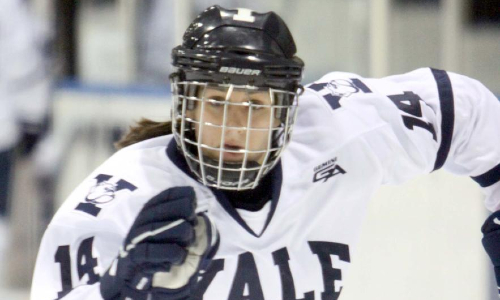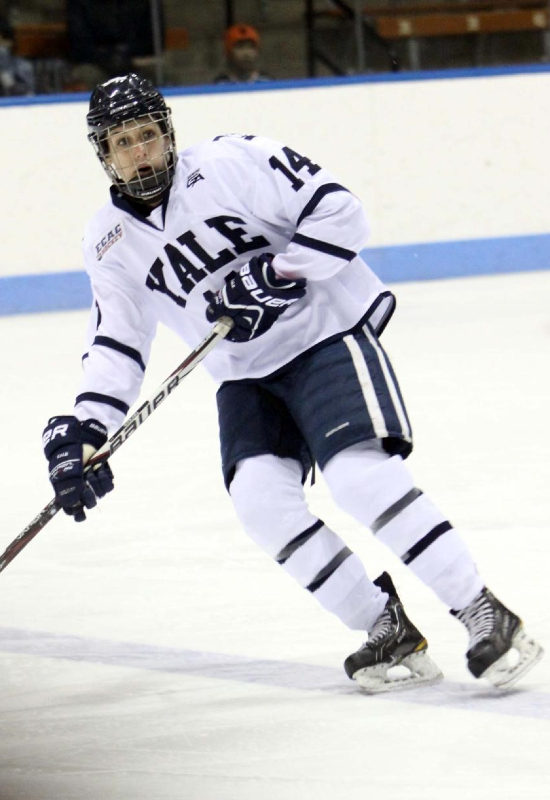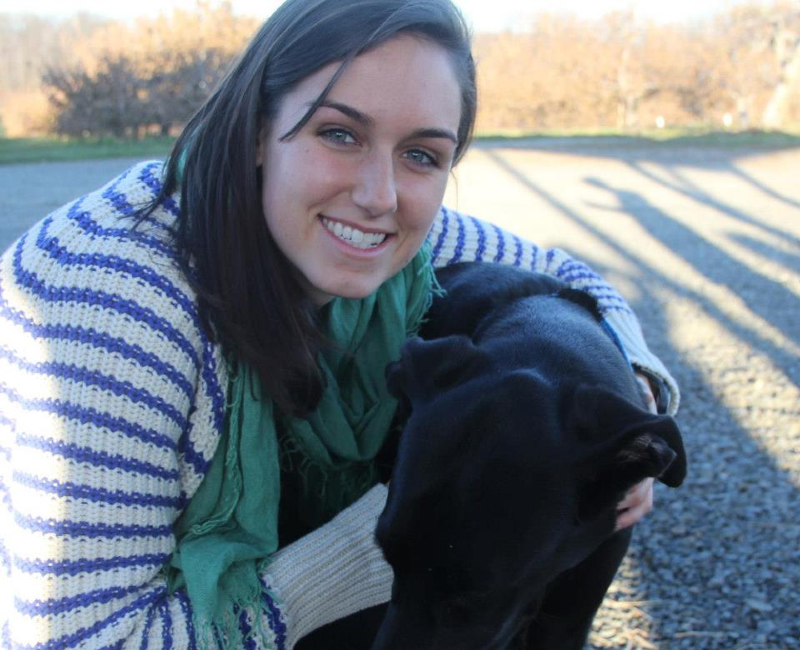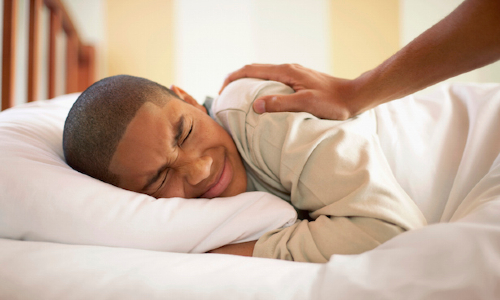Get Inspired
My Last Concussion in Hockey
When you struggle with an injury for nearly two years as I have, it’s not easy to forget what caused all of your pain, even if it is a concussion. My journey began November of 2013, my senior year on Yale’s women’s hockey team.

Posted: November 30, 2015
We were losing 4-1 with less than five minutes left in the third period. The puck had been in our defensive zone. When my team gained possession, I followed our defensive zone break out and swiftly cut across the neutral zone ice, preparing to receive a pass from one of our defensemen.
The pass went off without a hitch, but its perfect execution didn’t receive such a successful follow through.
I was laying face down on the ice before the puck even touched my stick.

I had been blindsided, a hit from behind.
I was violently thrown to the ice. The force created an enormous shock to my system, and my immediate reaction was one of complete and utter fury. My body felt like it had been attacked. I had never been so physically and mentally unprepared for such a forceful jolt to my body.
It shook me to my core.
I immediately heard what sounded like those extraordinarily violent, ear-piercing violin chords in horror films at the climax of a life-altering scene.
It was fitting for what was to come.
I was able to get up on my own and, after a few moments of catching my breath on the bench, I was back out on the ice playing. Surely a standard old routine penalty like that wouldn’t merit two years of suffering, wouldn’t abruptly and unjustly bring my hockey career to an end, wouldn’t lead me fighting tooth and nail to graduate on time, wouldn’t cause me to take a leave of absence from my first big job, wouldn’t create pain I didn’t know existed, and certainly wouldn’t send me traveling all over the continent to meet with confused and disagreeing doctors. Surely it wouldn’t lead me down a dark road of depression, anxiety, self-doubt and general existentialism.

I had never had a concussion before, and so my initial thought-process was one that consisted largely of lying to myself.
I tried not to give too much weight to the fact that my vision was fuzzy as I glanced around the locker-room, slowly undressing my gear while attempting to make sense of whatever it was my coach had to say after the game.
I tried not to worry that my head felt ten pounds heavier than normal, or that I couldn’t focus on anything my teammates were saying while we were eating our post-game meal.
Instead I told myself I probably just needed to hydrate and sleep it off, that I’d wake up and feel 100% again.
I had taken bad hits before, I thought. Be tough.
And I had seen other athletes play through it before, so I should too, right? Just pop some Tylenol, heat your neck and suit up for game two the next day.
Finishing that game feeling just as awful as I had when it started still wasn’t enough to convince me I should take a step back. Instead, I naively told myself another night’s rest must be what I needed. I upped my water intake just to be safe and took more Tylenol too.
The following morning, day three post-hit, I suffered through my team's morning lift in the weight room, telling myself that the grogginess I was experiencing must be because I hadn’t had enough coffee. It was just like any other Monday, right?

Instead of giving any meaningful thought to the potential repercussions of continuing to play with a concussion, I took another round of Tylenol just as I had the day before and suited up for our on-ice practice.
I had never missed a practice or a game at Yale before, and I told myself now was not the time to break that tradition. Being only three months shy of the culmination of my career as a competitive athlete, I pushed on regardless. It was the bitter conclusion to a lifetime of hard work and dedication to a sport I loved.
Time was precious. I had worked too hard to take a break, to rest. So I battled through practice even though it was all so clear that something was off.
It had been clear from the moment I got hit. It was so clear but I did everything I shouldn’t have done anyway.
This self-inflicted, intuitive denial is a thought-process I imagine many athletes have experienced and will continue to experience so long as they choose not to take concussions as seriously as they should.
I wish I had.
You May Also Like

Finding a doctor who understands concussion is key to managing your injury. Learn how to seek out the best care and when to try active treatments for concussion.
Concussion Treatments
If your concussion symptoms persist longer than six weeks you may have Post-Concussion Syndrome (PCS). Learn about PCS and what you should do if you are concerned you or a love one may have it.
What is PCS?